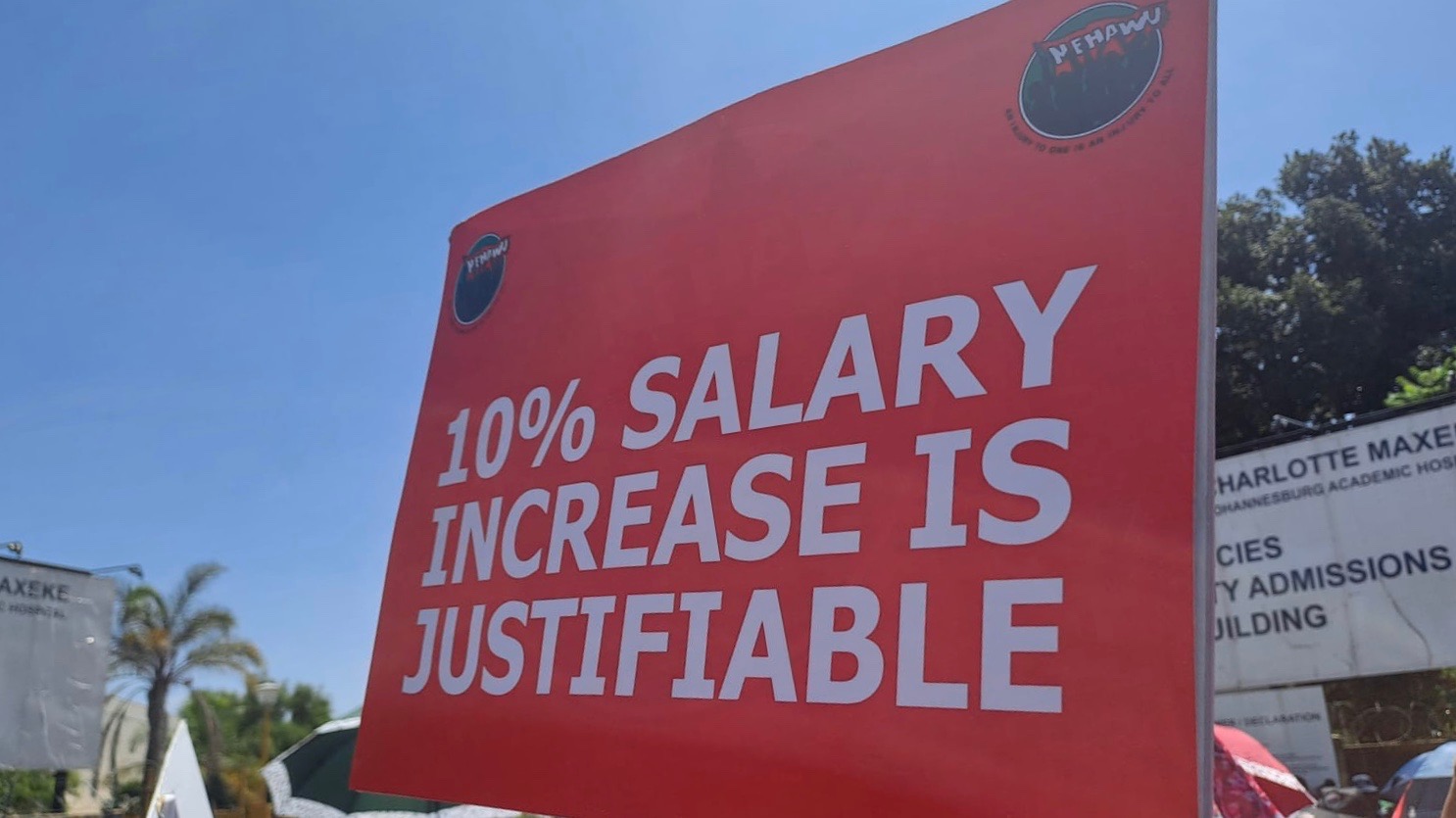The South African National Education, Health and Allied Workers’ Union (NEHAWU) announced the end of a strike launched on March 6. Their announcement came as the government agreed to revisit the salary increase for the current year and signaled it was willing to reconsider its approach to collective bargaining with the union.
In the 10 days of the strike, the government had repeatedly refused to approach negotiations with the trade union seriously, dismissing their demand for a 10% pay rise. Instead, the government had offered a salary increase below 5%, which the trade unionists said would not be enough to keep up with inflation and rising costs of living in South Africa.
In addition to the disputed amount of the salary increase, NEHAWU warned that the government was dismissing the possibility of more significant trade union involvement in defining their own working conditions and rights. This was interpreted in the context of several attempts to limit trade union participation in the past few years, including through labor legislation which dampers health workers’ ability to engage in industrial action.
NEHAWU stated that in that regard, one of the positive outcomes of the strike was the government’s recognition of the importance of negotiating a Minimum Service Level Agreement, the lack of which complicated the effects and implementation of the latest strike. Through a minimum service level agreement, it is defined which services are to continue functioning even as a strike takes place. In the case of health care, the agreement’s most significant role is to ensure that health workers can implement their right to take industrial action without inadvertently causing harm to patients.
Read also: Health workers in South Africa protest as post-pandemic austerity looms
As the NEHAWU strike progressed, extensive disruptions to health care delivery were reported in multiple parts of the country. The action spread to all parts of the system, including emergency and maternity services, and patients were turned away even as they had no alternative place to seek care. This reflected particularly on the poor, who could not access care in clinics where workers were on strike, but also couldn’t go to the private sector because of the high costs.
Quoting such disruptions, a court in Johannesburg ordered for the strike to cease earlier in the week, and the government deployed military medical personnel to assist with care delivery. They also used the disruptions as a pretext to declare the strike unethical as such, saying in a statement that: “Cabinet condemns in the strongest possible terms the lawlessness and intimidation that characterized the public sector strike and negatively affecting the lives of citizens through lack of service delivery.”
On the other hand, NEHAWU members received solidarity statements from both local and international trade unions, including the Democratic Nursing Organisation of South Africa (Denosa), which was getting ready to launch a strike of their own as the agreement was reached, and Public Services International (PSI). PSI said that the public sector workers in South Africa were “really caught up between the proverbial rock and hard place,” in between soaring costs of living and an employer unwilling to admit that.
The People’s Health Movement (PHM) South Africa also reacted to the strike, saying in their statement they support “the right of health workers to take strong, even disruptive, industrial action to improve wages and working conditions.”
According to PHM South Africa, health workers’ industrial actions have the ability to achieve improvements of the health system which benefit patients and staff alike. Yet, the network pointed out that it is of extreme importance that while health workers are struggling for their own rights, they must do everything in their power to avoid putting in danger the health and lives of patients, especially those who have no access to alternatives to the care provided in the public sector.
The network pointed out that in a health system which is devastated by decades of austerity, corruption, and the HIV/AIDS and COVID-19 pandemic, health workers’ trade unions must do everything in their power to ensure that those in most need of health care can access at least the essential parts of it at any time. PHM South Africa invited NEHAWU to focus on their demands, but also to “include protection of the public health system and everyone’s human rights, including the right to health” on their list of goals.
People’s Health Dispatch is a fortnightly bulletin published by the People’s Health Movement and Peoples Dispatch. For more articles and to subscribe to People’s Health Dispatch, click here.





